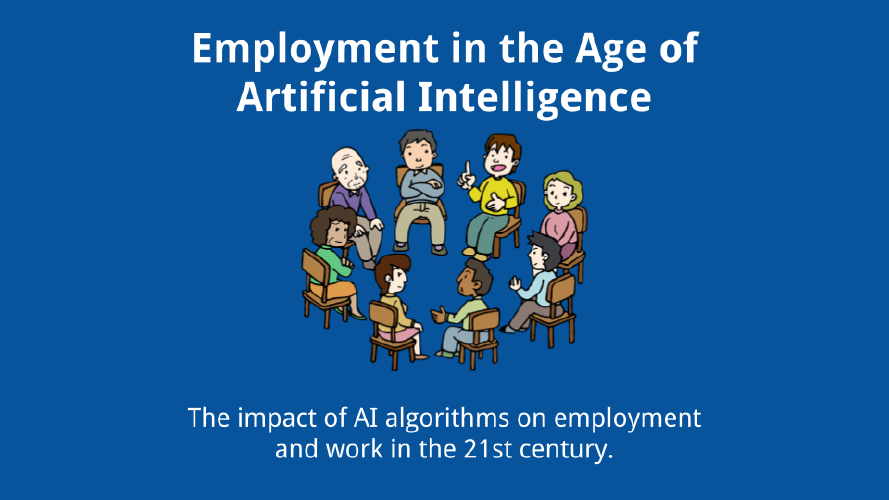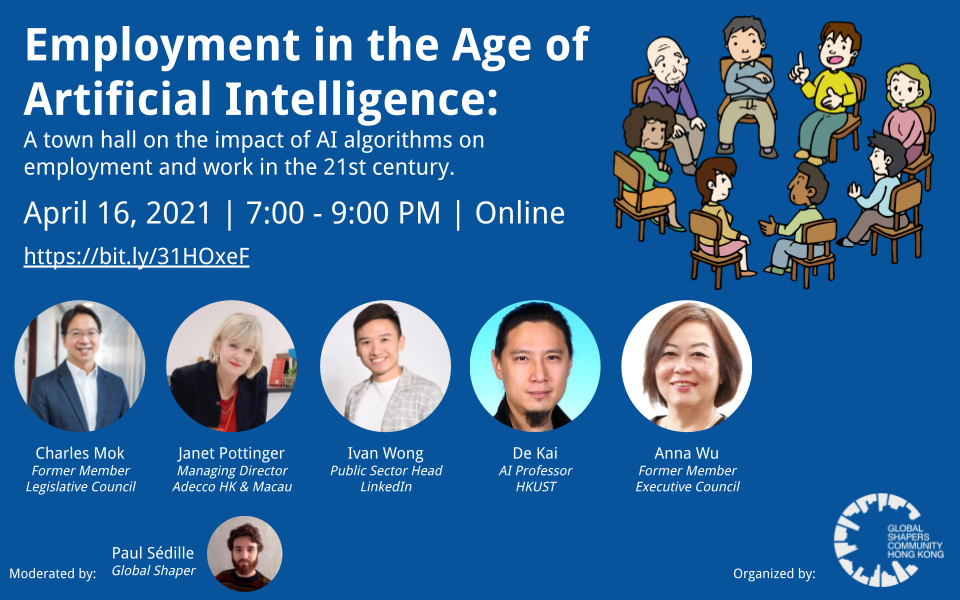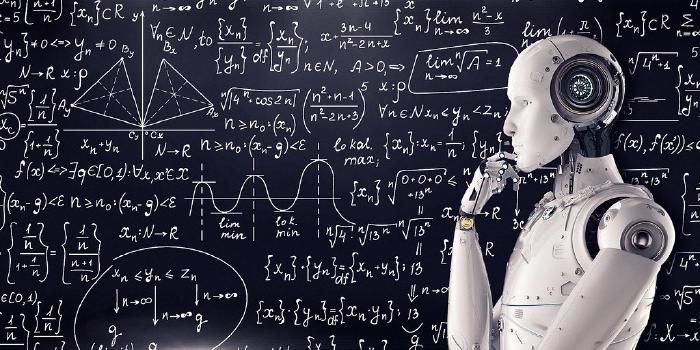Employment in the Age of AI

Pandora’s box has opened. We are past the point of no return. The world turned upside down. Whichever way you want to describe it, our world broke in 2020. Individuals, companies, and countries scrambled to deal with a constantly shifting and uncertain environment. Thankfully, with vaccines now being rolled out, a return to some form of normalcy is on the horizon. But a return to normalcy does not mean a return to business as usual. The pandemic has fundamentally shifted the way we do business. One of the biggest shifts being in companies’ digital transformation. And the adoption of new tools like Artificial Intelligence (AI).
The Davos Lab initiative was born out of the pandemic. Created as a Global Shapers Community (GSC) initiative, it aims to facilitate dialogue among the youth to help society recover from COVID-19. As part of that initiative the GSC Hong Kong Hub had organized a number of outreach events to gather insights into how we can build back better. One of the topics that we chose to engage in was in Digital Literacy. With a specific focus on the impact of AI on employment and the future of work.
To that end, we organized a town hall where the public could voice their views and concerns on the topic, and discuss these concerns with a panel of experts. We were fortunate enough to have a diverse panel joining us. Representing fields ranging from academia, to public policy, to the HR industry:
- De Kai, AI Professor, Department of Computer Science and Engineering, HKUST
- Charles Mok, Former Legislative Council Member in IT functional constituency
- Janet Pottinger, Managing Director, Adecco HK & Macau
- Ivan Wong, Public Sector Head, Linkedin HK& Macau
- Anna Wu, Former Executive Council Member & Former Chairman, Equal Opportunities Commission

The discussion was both informative and insightful. The main takeaways from the entire discussion centered around three major points:
- The concern of biased AI models
- The importance of re-skilling
- The importance of humans as final decision makers
Biased AI models. You do not need to look far to know that there is concern on AI being biased. The news is rife with examples of bias and attempts at rectifying them . Work needs to be done to try and minimize that bias as much as possible.
AI models are created when we feed data into algorithms; mathematical instructions you give a computer to process data. Algorithms by themselves are not biased. It is biased data that produces biased models. So great care needs to be taken in ensuring that the data we feed into AI algorithms are as accurate, fair, and inclusive as possible. Creating an AI model can be likened to educating a child. It is more art than science. We need to ensure that the right values, lessons, and skills are imparted onto them. One of the main suggestions by our panel to combat this issue was on making good data a public resource and open to scrutiny from the public.
Re-skilling. The experts on our panel made one thing very clear. AI is here and it is here to stay. It is no longer a question on if AI will take over jobs, but a matter of when, what jobs, and how it will occur. Therefore significant efforts need to be placed in properly re-skilling the labor force so that we may be able to cope with this technological shift.
The consensus is that the introduction of AI will be able to create a lot more jobs than it will replace, and an economic opportunity for many. The implementation of AI tools means that there is growing demand for individuals with practical industry experience that can use those tools. It is also far more cost-effective to re-skill and re-train an existing employee than to replace them completely.
However the effort is not without its challenges. Loss of dignity and hesitancy are major concerns when it comes to adapting to AI. Re-skilling needs to be seen as a top priority. There was widespread agreement that it is the responsibility of government, with input from the business sector, to come up with an inclusive re-skilling program that can accommodate the needs of the economy with the needs of the individuals that are looking to be re-trained.
Humans as final decision makers. Ultimately, humans still need to be seen as the final decision makers. This was one point that our panel was very adamant about. AI is a tool, and it should be viewed as such. It is a tool that compliments the existing efforts of a human, but doesn’t replace them.
This is an approach that many companies are engaging in right now. Brands like Google, Renault, and Nutella have started leveraging AI to augment their design process. Human designers provide “empathetic context ” to a problem; they identify the problem and frame it. Then the AI does the computational heavy-lifting.
Ultimately, we are facing a crossroads. De Kai, one of our panelists, had a especially poignant comment on AI and its integral role in the “Fourth Industrial Revolution ”:
“The phrase “Fourth Industrial Revolution” is comforting. Because it implies the idea of “we’ve already done this before.” But that is not what we are facing right now. The previous three industrial revolutions were revolutions in physical power. Replacing muscle with machine. But this is a revolution in intellectual power. We’ve never encountered anything like this before.”
AI represents a plethora of new opportunities for us. It represents new and exciting ways for us to tackle old problems. But it also represents a challenge. How can we use this new tool for good? How can we use it to help our fellow man? How can we use it to improve the state of the world?
It is how we answer these questions that will ultimately define employment, and our lives, in the age of AI.



